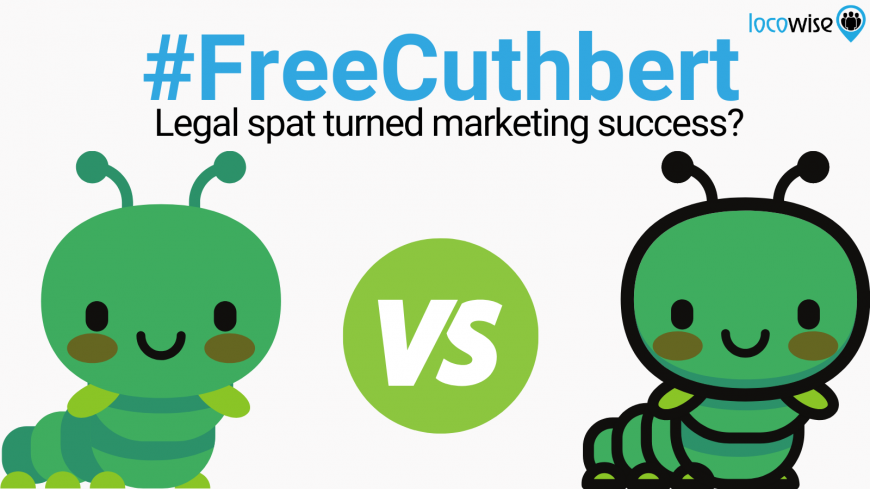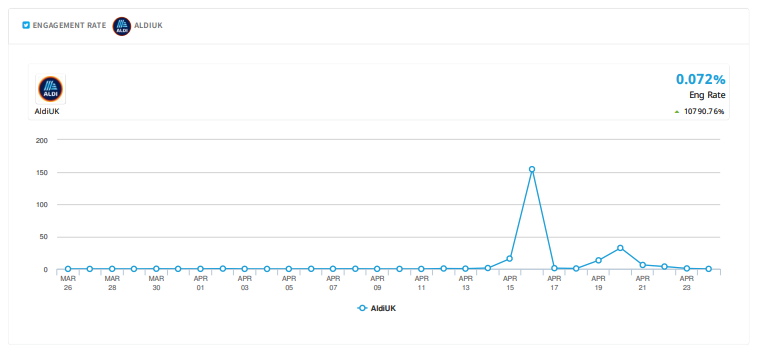#FreeCuthbert… legal spat turned marketing success?
Sophie Beard posted on 26 April 2021
Colingate has gripped marketers and the public alike. Aldi has turned a legal battle into a social media marketing campaign. We look into how they’ve done it, what impact it’s had on their social channels, and what else we can expect to see.

M&S recently announced that they would be taking legal action against Aldi’s Cuthbert the Caterpillar. M&S claim Aldi infringed trademark rights for their Colin the Caterpillar cake and that the similarity leads consumers to believe they are of the same standard and “rides on the coat-tails” of M&S’s reputation.
Rather than deal with this in private, Aldi decided to take it to social.
News of the legal action hit the headlines on April 15th and the stream of tweets and Facebook posts from Aldi calling to #FreeCuthbert gathered pace on April 16th.
As seen in the chart below from Locowise, Aldi’s usual Twitter engagement rate is below 0.5%, engagement rate spiked as the post went viral.

Likewise, their Facebook page has gained a wealth of new fans.

Aldi’s first tweet on April 15th was brave, but relatively safe from what was to come. The play on words from M&S’ known phrase and the hashtag to #FreeCuthbert generated a positive response and Aldi could see that their audience were on their side.
This isn’t the first time Aldi has been involved in a Twitter spat with other big brands. In August 2020, BrewDog co-founder James Watt took to social media to highlight the similarities between Aldi’s non branded beer and BrewDogs Punk IPA. The end result of this was positive and a collaboration followed between the two brands.
But what will come of this current spat with M&S? Will Cuthbert be freed? The chances are, most developments will be played out on social media. We’d expect to see another peak in engagement and impressions, but will followers tire of seeing Aldi involved in these battles? With the Locowise tool we’ll be able to tell you exactly how it affects Aldi’s social media platforms.





